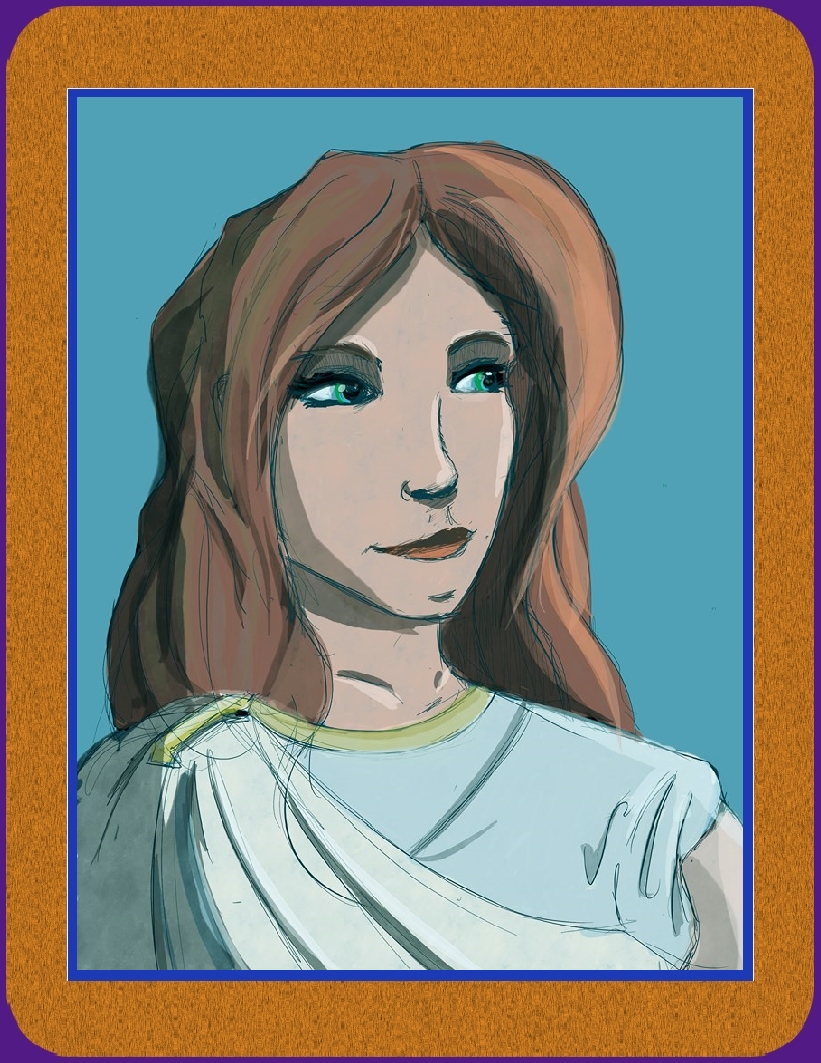
(Leah goes over a university project she is working on for her engineering degree. We discuss various options she could use and how she was to be tested on what she had learned. Her work was being repeated by other students on other bases in hologram form at first to demonstrate their comprehension of the lessons.)
Leah: hey.
Russ: hey.
Leah: how's it going Russ?
Russ: good, who's this? Leah?
Leah: uh-huh.
Russ: hi Leah.
Leah: hey.
Russ: how ya doing sweetheart?
Leah: ohhhh, study, study, study, study, study.
Russ: good for you.
Leah: uh-huh.
Russ: and well you should.
Leah: yes. I can't quite understand that if the laser sequential operation system is malfunctioning in the capacity of the heat draining sink, then the override mechanism should cut in to reduce the drainage. Very confusing.
Russ: well, don't you have like a coolant coming in?
Leah: uh-huh.
Russ: so the computer should be sending in coolant but if you're......
Leah: that's not the problem.
Russ: well if it's supposed to shut down isn't it?
Leah: no it's not. You see it's part of a paper I'm reading.
Russ: right. Well like a nuclear reactor, if it suddenly overheats, automatically the shut down synchronizations that go on that keep it from overloading.
Leah: yes but paper that I'm reading, it's actually a reference to a heat source distribution system.
Russ: so like a central heating system?
Leah: kind of.
Russ: like what's going on right here?
Leah: a lot more sophisticated.
Russ: well sure, yeah.
Leah: uh-huh.
Russ: hmmm, well what would happen if it overheated?
Leah: it would melt the circuitry.
Russ: well I mean is that the least that would happen?
Leah: no it would probably continue increasing in the heat.
Russ: right.
Leah: it would keep increasing, there would be no explosion or anything, it would just keep increasing.
Russ: so it would be necessary for it to shut down?
Leah: no it can't shut down because if it shuts down it continues to increase in heat.
Russ: so don't you have a redundancy system built in so that if one part fails to work.....?
Leah: well actually the problem is how do I.......the paper would read, "having reached the point of heat retention overload, how would it be remedied?" Now, the thing is first of all, I know I can't shut it down........
Russ: okay.
Leah: because the heat would continue to increase regardless of whether it is shut down or not.
Russ: oh okay, that makes it clear.
Leah: okay what do I do to fix it right? I can't replace it because replacing it would be shutting it down.
Russ: right.
Leah: okay so how do I fix it?
Russ: okay, what's the natural cooling systems that are built into it?
Leah: it uses four different......it uses gas.
Russ: uh-huh.
Leah: which is super-cooled.
Russ: right.
Leah: it uses heat believe it or not.
Russ: okay.
Leah: air and fluid.
Russ: okay, so all four at once or do they operate in synchronization?
Leah: they work all at once.
Russ: all at once. Okay and if the problem is if they aren't working correct?.
Leah: well if the heat......I think you would call it heat sink is not working?
Russ: right.
Leah: then how would it be fixed?
Russ: you have a redundant heat sink built-in.
Leah: actually the way that I worked it out would be that I would disconnect each section right?
Russ: uh-huh.
Leah: let's say I disconnect the air system.
Russ: yeah.
Leah: and plug it into the replacement, taking a bypass from the replacement unit and piping it back in to the currently used one.
Russ: isn't there a danger of shutting it down?
Leah: no because this is what I'm doing is that I'm linking the replacement unit in to the corrupted unit right?
Russ: right.
Leah: and when all four are linked in right? I just flip the cutoff switch and it cuts off the corrupted unit and everything else starts to run through the replacement unit and I can just pull it out.
Russ: oh so it's a heart bypass.
Leah: basically yes.
Russ: you can't shut down the heart, you replace it with a heart bypass or a heart thing that actually does everything that the heart does until you put the new heart in.
Leah: I'm basically replacing the new heart. Correct.
Russ: right so you're basically doing what we would do and call it a heart bypass......
Leah: uh-huh.
Russ: surgery.
Leah: I would assume so.
Russ: yeah, you keep the heart running because you can't stop the heart or the body dies.
Leah: correct.
Russ: but you put a machine in in the meantime until you get the other heart in.
Leah: uh-huh.
Russ: once you get the other heart in, then you just take the machine off.
Leah: uh-huh and that's basically what I'm doing.
Russ: ahh that makes sense.
Leah: uh-huh. It's simple, basic.......
Russ: medical work out.
Leah: no, engineering.
Russ: same thing. The human body is a machine.
Leah: yes true, true but what I'm doing is, this is something it's part of a paper that I will be doing is that I have this machine that has all these problems.......
Russ: uh-huh.
Leah: and I have to fix them. I have two weeks to fix them in.
Russ: sounds like you already got it done?
Leah: that's problem one.
Russ: how many problems are there?
Leah: 30.
Russ: good God, glad I'm not in your school.
Leah: uh-huh. The next one, and I don't have the page so I'm going to try and remember it, is that the vibration dampening mechanism is functioning in a reverse capacity to increase the vibration but the system has a fail-safe system that is correcting the problem but compensating in the wrong direction, if I've got it right and I don't think I have.
Russ: well what I would do in that case and it's always helped me before is I would just ask Kiri.
Leah: I can't, I can't.
Russ: and Kiri would just go, "oh that's easy, you just do this."
Leah: uh-huh.
Russ: and it's all fixed.
Leah: uh-huh but I can't ask her as she is going to be one of the people grading the paper.
Russ: ah well that would be cheating.
Leah: uh-huh. And then this is the hard part is that I have to build the units that I'm replacing so I'm building this machine as I'm doing the paper.
Russ: oh my God.
Leah: uh-huh. I have to have the malfunctions to specifications exactly as they are on the engineering paper and fix them.
Russ: well at least you don't have a budget to worry about.
Leah: true, true.
Russ: God if you had a budget, that thing would cost you bank....wine.....
Leah: oh, yeah but I.......
Russ: you mean all the students have to do this?
Leah: uh-huh.
Russ: how many machines are you going to have laying around here getting done?
Leah: well, Kiri just gets the holo's sent to her and the papers. The answers.....
Russ: oh you're doing them in holograms?
Leah: no I'm doing them in real.
Russ: in real, yeah okay.
Leah: but back at the University.
Russ: oh.
Leah: uh-huh.
Russ: then do them in real.
Leah: uh-huh, I'm doing mine in real and they're doing their's in real and we're doing our papers and there's other students on the other bases and stuff doing exactly what I'm doing.
Russ: good Lord. Is this an exam or finals or something?
Leah: no this is just a yearly test that we all do. This is first year student stuff.
